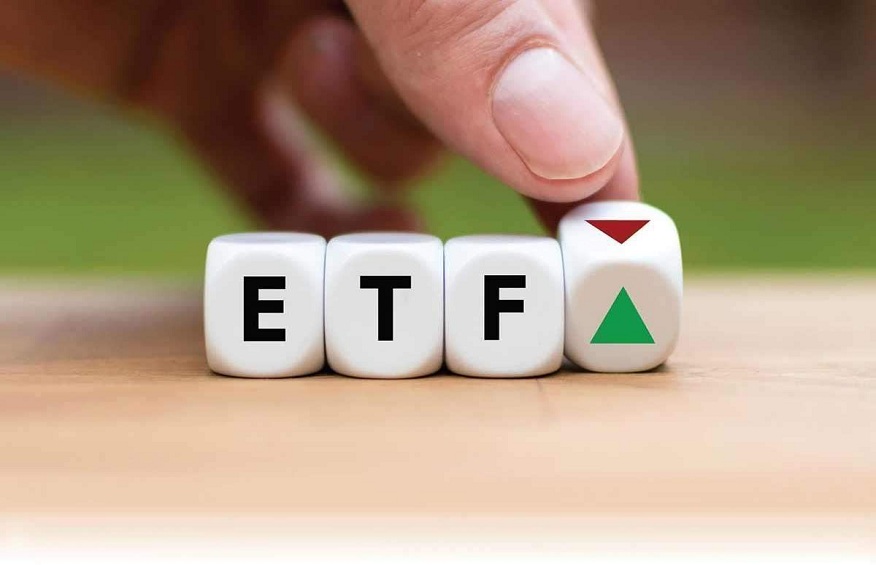As the investing world evolves and adapts, exchange-traded funds (ETFs) have become favoured by investors looking for diversification and convenience. And in Singapore, ETFs have been steadily gaining traction over the years, with more and more investors incorporating them into their portfolios. But what does the future hold for ETFs in Singapore? This article will explore some of the innovations and trends shaping the future of ETFs in Singapore.
Digitisation of ETFs
With the increasing demand for digital platforms and services, it is only natural that ETFs will follow suit. A few digitally-focused ETFs are listed on the Singapore Exchange (SGX), such as the Lion-OCBC Securities Hang Seng TECH ETF and the NikkoAM-StraitsTrading Asia ex-Japan REIT ETF. These digital-focused ETFs offer exposure to companies leading in the digital space, providing investors a unique way to invest in this growing sector.
But it’s not just about the products themselves – the digitisation of ETFs also means a more streamlined and efficient process for investors. With technology, investors can now easily access and monitor their ETF holdings, making it easier to track performance and make informed decisions.
Traders can also leverage technology to execute trades quickly and with more precision, reducing the impact of human error. It will significantly benefit active traders looking to capitalise on market movements.
Increased focus on sustainability
Sustainability has become a hot topic recently, with many investors looking to align their investments with their values, which has led to an increased number of sustainable and ESG (environmental, social, and governance) focused ETFs in the market.
In Singapore, several sustainability-focused ETFs are listed on the SGX, such as the UOB-Sigma Sustainable Leaders ETF and the Lion-Phillip S-REIT ETF. These funds offer exposure to companies that adhere to ESG principles, allowing investors to invest socially responsibly.
With the growing awareness and importance of sustainability, we expect to see more sustainable ETFs being introduced. It will give investors more options to incorporate their values into their investment decisions.
Active management of ETFs
Traditionally, ETFs have been known for their passive investment approach, tracking an index’s performance. However, we now see a trend towards actively managed ETFs in the market.
Active management allows fund managers to make investment decisions based on their analysis and research, potentially outperforming the market. In Singapore, there are already several actively managed ETFs, such as the Lion-OCBC Securities Hang Seng TECH ETF and the NikkoAM-StraitsTrading Asia ex-Japan REIT ETF. These funds combine active management with a thematic approach, offering investors exposure to specific sectors or themes.
This trend towards active management may continue as investors seek higher returns and diversification through their ETF investments. It also allows fund managers to showcase their expertise and differentiate themselves in the market.
Continued growth of the ETF market
We can expect continued growth in Singapore’s exchange-traded funds market. In recent years, we have seen an increase in the number of ETFs listed on the SGX, which will likely continue.
The growth in ETFs will be driven by various factors, such as increased demand from investors for low-cost and diversified investment options, the introduction of new products and asset classes, and the growing interest in sustainable investing. Furthermore, with technological advancements and the digitisation of ETFs, we may see more retail investors entering the market.
Another factor contributing to the growth of ETFs is their low fees, making them an attractive option for cost-conscious investors. As the ETF market in Singapore continues to mature, we may also see a decrease in fees as competition between providers increases.
Customised and thematic ETFs
Another trend to watch for in the future of ETFs in Singapore is the rise of customised and thematic ETFs. These funds allow investors to target specific sectors, themes, or strategies that align with their investment goals.
For example, the Phillip SING Income ETF focuses on high dividend-paying stocks listed in Singapore, offering investors a steady income stream. Another example is the Lion-OCBC Securities Hang Seng TECH ETF, which hones in on companies leading in the tech sector.
The rise of customised and thematic ETFs gives investors more options to diversify their portfolios based on their investment preferences. It also allows for more targeted exposure, potentially delivering higher returns.
Expansion into new asset classes
As the ETF market in Singapore continues to mature, we expect to see an expansion into new asset classes. Currently, most ETFs in Singapore focus on equities and fixed income. However, we are seeing a growing interest in other asset classes, such as commodities and alternative investments.
One example is the Lion-OCBC Securities Hang Seng TECH ETF, which includes exposure to Chinese-listed internet companies. Another is the iShares China A50 ETF, which offers exposure to China’s A-shares market.
As investors look for diversification and alternative sources of returns, ETF providers will continue introducing new products focused on different asset classes. It will give investors more options to build well-rounded portfolios and potentially enhance their risk-adjusted returns.

